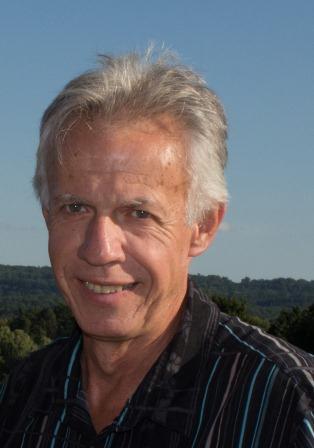
Saying “Good-bye”
Hans asks me how I’m doing as he walks in to the office where I am working, casually dressed, with an easy, relaxed smile on his face. This is usually the way Diaconal Ministries Canada (DMC) staff interact with Hans. And on this day, it’s almost like we are about to start talking about what we’re working on; it’s almost like nothing has changed. Except that it has. It was only a few weeks ago that Hans completed his last day with DMC. And a week before that, I had the opportunity to sit down and reflect with him on his tenure as National Director of DMC.
The last 15 years at DMC has been characterized by Hans’ dynamic yet steady vision, which was consistently supported by the Board and had already begun to develop years ago through his experiences. Under Hans’ leadership, DMC clearly articulated its purpose to walk alongside Canadian CRCs sent to join God in His work of reconciliation, transforming communities into places of shalom. And diaconates have an important leadership role in that, Hans maintains, as long as they are able to reimagine themselves as something other than simply an administrative body.
It is clear from the way in which Hans talks about it, that becoming a deacon at the age of 40 made a difference in his life and helped to develop his passion and vision. At the same time as he was beginning to feel less fulfillment in his chosen field of accounting, he was, as a deacon, doing more than simply those administrative tasks: he was connecting with people from the community who came to the church looking for help. This fit his gifts well and God used these experiences to encourage him to attend Calvin Seminary in 1993 and serve with World Missions in Honduras and Costa Rica from 1995-2001.
Hans’ time in Central America would provide a different lens through which he would view the church in Canada. As he witnessed oppression and poverty alongside of the growth and development of missional communities in Honduras, he recognized a profound role for the church in pursuing holistic ministry. In this context, distinctions between elder and deacon, missionary and development worker mattered far less than the pursuit of justice and mercy with the marginalized and poor. In the Canadian context, however, he also saw a role and opportunity for deacons to be catalysts for community engagement. But it was not just about the deacons –the health of the church seemed to him to be directly proportional to the effectiveness of the diaconate.
All of these experiences and learnings would bless DMC as Hans became National Director in 2001. By that time, the groundwork had been laid for a centralized mission which, conversely, was strengthened by decentralizing DMC staff and Diaconal Ministry Developers to better serve the churches coast to coast. A national, classis-based model was beginning to be realized. By 2002, Board members stretched across the country and DMC was focused on finding Diaconal Ministry Developers to serve each classis.
This was the first of a number of significant changes in DMC and the CRC that happened during Hans’ tenure. DMC contributed its voice to the conversations on the changing view and role of deacons. Women increasingly brought an important dimension to diaconal work as the full gifts of the body were being represented in leadership. As churches increasingly felt called to their local communities, Hans appreciated how they also began to take the risk of the Community Opportunity Scan as a tool for community engagement. And, more recently, the Diakonia Remixed report was not unfamiliar to Canadian deacons because it had already been the language of DMC. When Synod affirmed the report, the work of many deacons across Canada and the work of DMC was also affirmed. Finally, DMC also began to give intentional focus to the area of justice and to help churches understand how fundamental it is for deacons and churches to love their neighbours in concrete and visible ways, look deeper than charity to seek out the root causes of poverty and marginalization in their communities.
While DMC’s focus on justice, for example, is the kind of thing often seen as a measureable indicator of success, it is also the unmeasurable things that take good measure of Hans’ years as National Director of DMC.
At his recent retirement party, staff celebrated how Hans was a thoughtful, engaged and gentle servant- leader. He had a unique ability to be a strong administrator yet remained flexible to accommodate new ideas. He thinks deeply, lives his convictions, encouraged his staff and gave them the freedom to use their gifts. One of his most appreciated characteristics is that he relational and caring: the culture of DMC has been deeply impacted and strengthened by his person, experiences and abilities. We are grateful to God for his character and leadership.
So when Hans walks into the office where I’m working, I put aside my work and give him a hug, grateful for the opportunity that I have had to work with him and grateful for the great gift that Hans was to DMC and to the CRC in Canada. And that is one thing that will not change.



